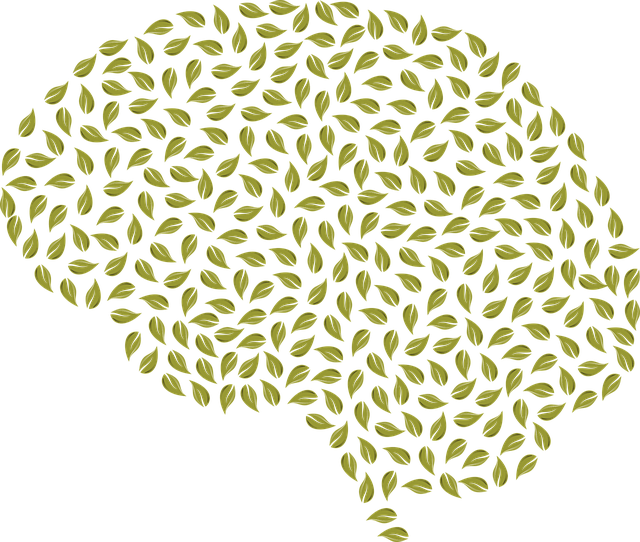Mental health challenges among Russian-speaking communities face significant barriers, including cultural stigma and language differences, hindering access to suitable therapy. Effective strategies involve tailored programs addressing burnout, self-esteem, and encouraging self-care aligned with their cultural beliefs. These initiatives, combining evidence-based therapies with cultural sensitivity, enhance participation, reduce stigma, and improve mental health outcomes. Program design should include bilingual support, culturally relevant resources, and training for facilitators, fostering resilience and community well-being. Continuous improvement relies on expert engagement, risk assessment, feedback, and social skills training. (Keywords: Therapy for Russian Speaking)
Mental health education programs play a pivotal role in fostering well-being, especially within diverse communities like Russian-speaking populations. This article explores the intricate process of designing an inclusive program tailored to address mental health issues unique to these communities. We delve into strategies for incorporating evidence-based therapies, cultural sensitivity, and effective implementation, ensuring accessibility and positive outcomes. By understanding the specific needs of Russian-speaking individuals, we can revolutionize mental health support and make therapy more accessible to all.
- Understanding Mental Health Issues within Russian-Speaking Communities
- Designing an Inclusive Education Program for Diverse Audiences
- Integrating Evidence-Based Therapies and Cultural Sensitivity
- Implementing and Evaluating the Effectiveness of the Program
Understanding Mental Health Issues within Russian-Speaking Communities

Mental health issues among Russian-speaking communities often present unique challenges due to cultural, linguistic, and historical factors. In many cases, stigma surrounding mental illness persists, hindering individuals from seeking help or understanding their conditions. This is particularly true for therapy among Russian speakers, where access to culturally sensitive services can be limited.
Addressing burnout prevention, self-esteem improvement, and self-care practices tailored to these communities is essential. By incorporating methods that resonate with cultural beliefs and experiences, mental health education programs can foster open dialogue, reduce stigma, and improve outcomes. This approach not only benefits individuals struggling with mental health issues but also promotes overall well-being within Russian-speaking populations.
Designing an Inclusive Education Program for Diverse Audiences

When designing a mental health education program for diverse audiences, it’s crucial to create an inclusive environment that caters to the unique needs and cultural backgrounds of all participants, especially those who may require specialized support, such as Russian-speaking individuals seeking therapy. This involves adapting materials and methods to bridge any communication or understanding gaps, ensuring accessibility for all. For instance, incorporating Russian language resources, including translated materials and therapists fluent in Russian, can significantly enhance participation and effectiveness.
Emotional regulation and stress management workshops should be organized with an eye towards cultural sensitivity. Trauma support services, tailored to address specific cultural experiences, can play a vital role in fostering safety and trust within the program. By recognizing and addressing these diverse needs, the education initiative not only becomes more impactful but also encourages open discussions on mental health, ultimately promoting better emotional well-being among all participants.
Integrating Evidence-Based Therapies and Cultural Sensitivity

In designing mental health education programs, integrating evidence-based therapies with cultural sensitivity is paramount. This approach ensures that interventions are both effective and accessible to diverse populations, including Russian-speaking individuals who may face unique challenges related to language barriers and cultural nuances. Tailoring therapy for Russian-speaking communities involves providing bilingual support, incorporating culturally relevant resources, and training facilitators in cross-cultural communication skills.
By combining evidence-based practices like mindfulness meditation and compassion cultivation with cultural sensitivity, mental wellness programs can foster resilience building among participants. This holistic approach acknowledges the interconnectedness of mental health, cultural identity, and community support, ultimately enhancing the overall well-being of individuals within these communities.
Implementing and Evaluating the Effectiveness of the Program

Implementing a mental health education program requires careful planning and strategic execution to ensure its effectiveness. One crucial step is tailoring the curriculum to meet the specific needs of the target audience, such as Russian-speaking communities, by incorporating cultural sensitivity and language accessibility. This involves engaging experts in therapy for Russian speaking individuals to develop relevant content and activities.
Evaluating the program’s success goes hand in hand with its implementation. Utilizing robust assessment tools, including risk assessment for mental health professionals, allows for tracking participant engagement and knowledge retention. Additionally, measuring the impact on community outreach program implementation and social skills training can provide valuable insights into the program’s overall effectiveness. Regular feedback from participants and stakeholders is essential to refining and improving the curriculum continuously.
Mental health education programs designed for Russian-speaking communities must be inclusive, culturally sensitive, and evidence-based. By understanding the unique challenges faced by these communities, we can create effective interventions that promote mental well-being. Integrating tailored therapies and addressing cultural nuances are essential to ensure accessibility and impact. Continuous evaluation ensures the program’s success in providing much-needed support for Russian-speaking individuals seeking therapy.









